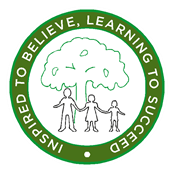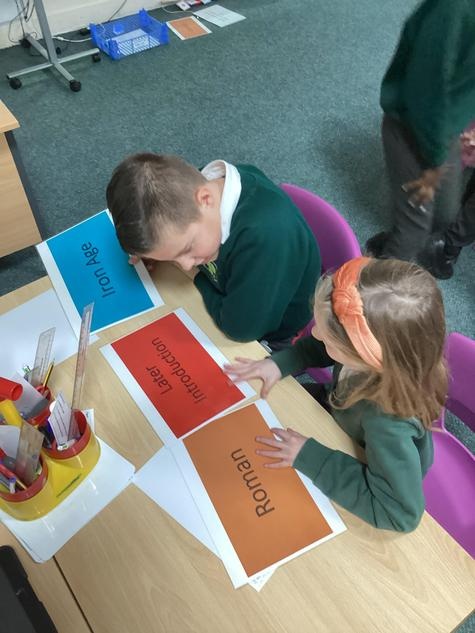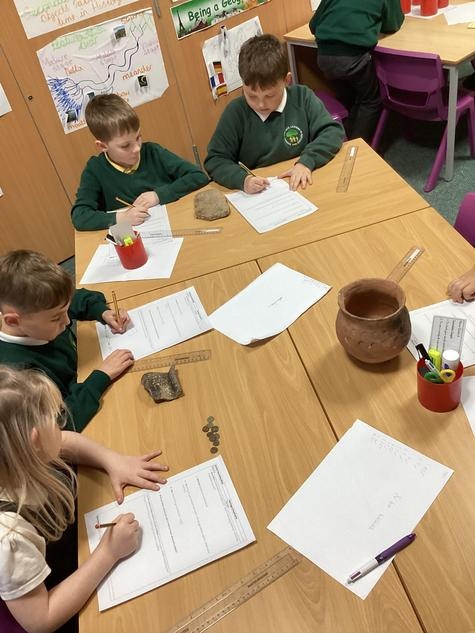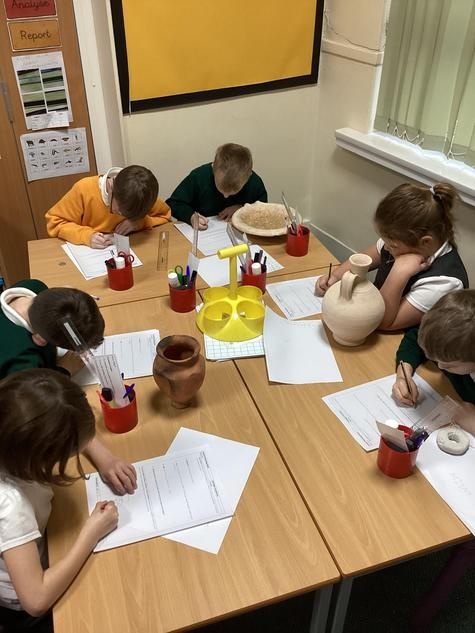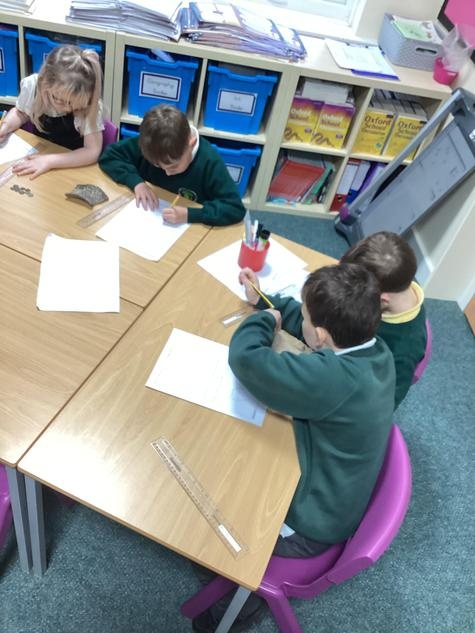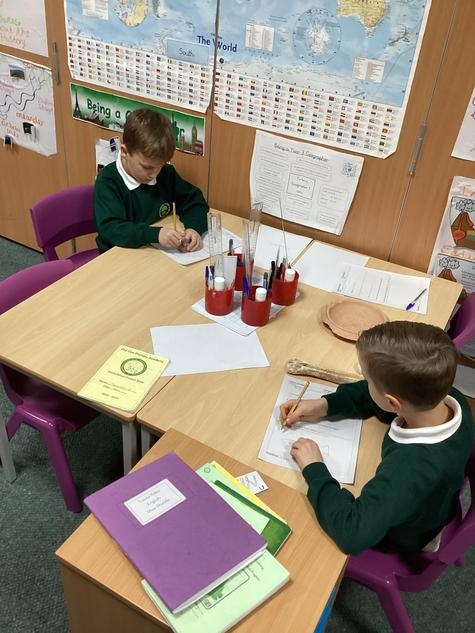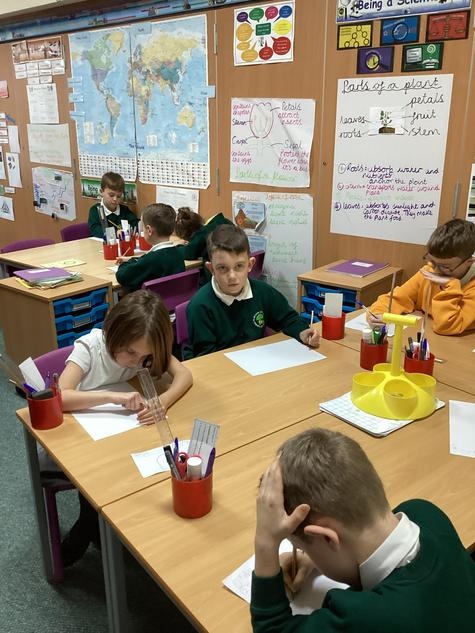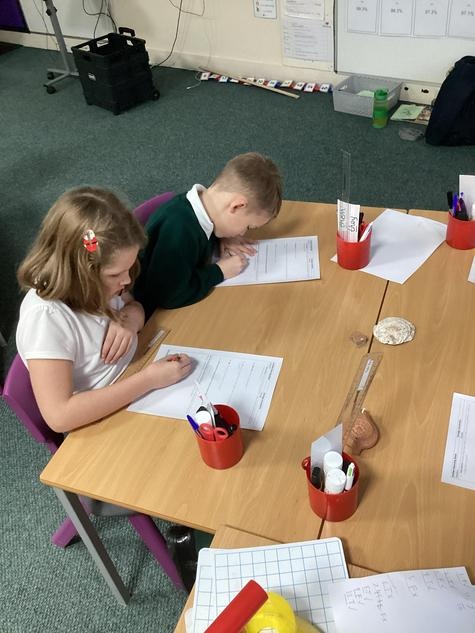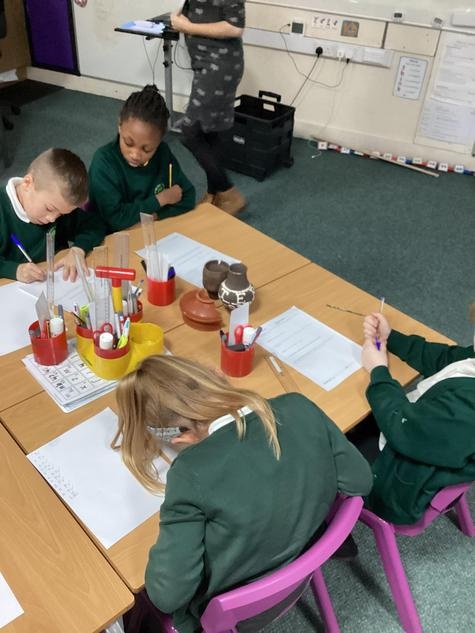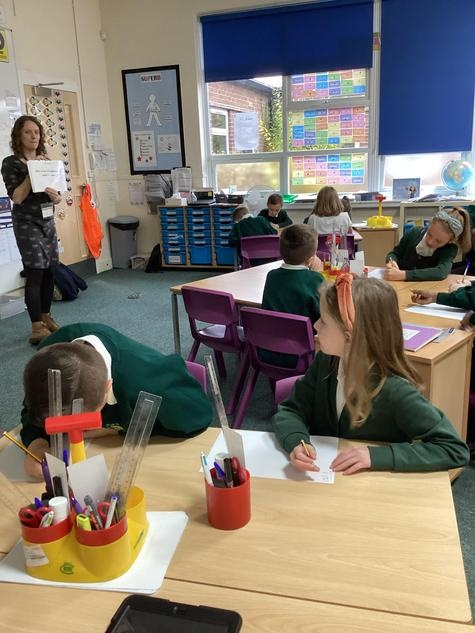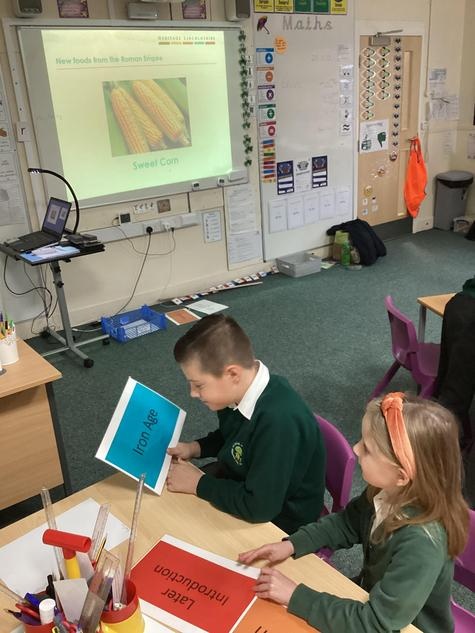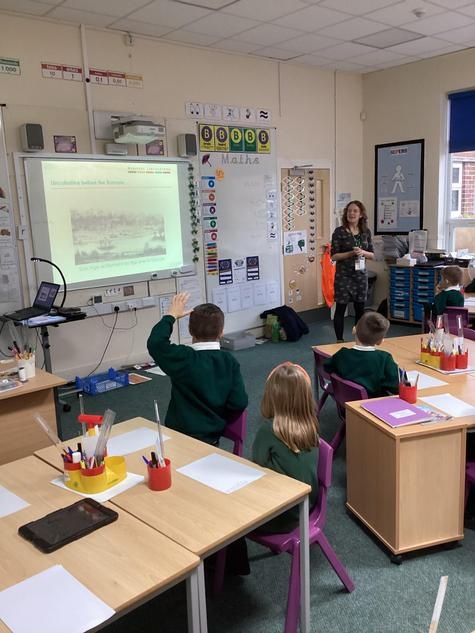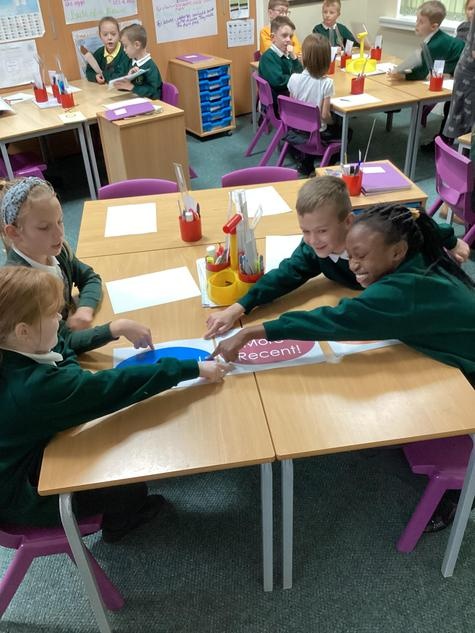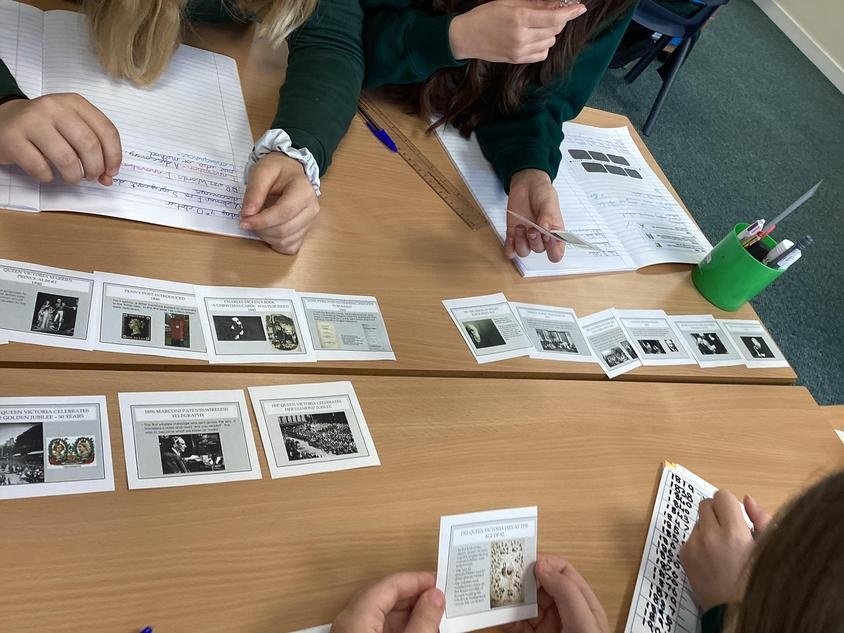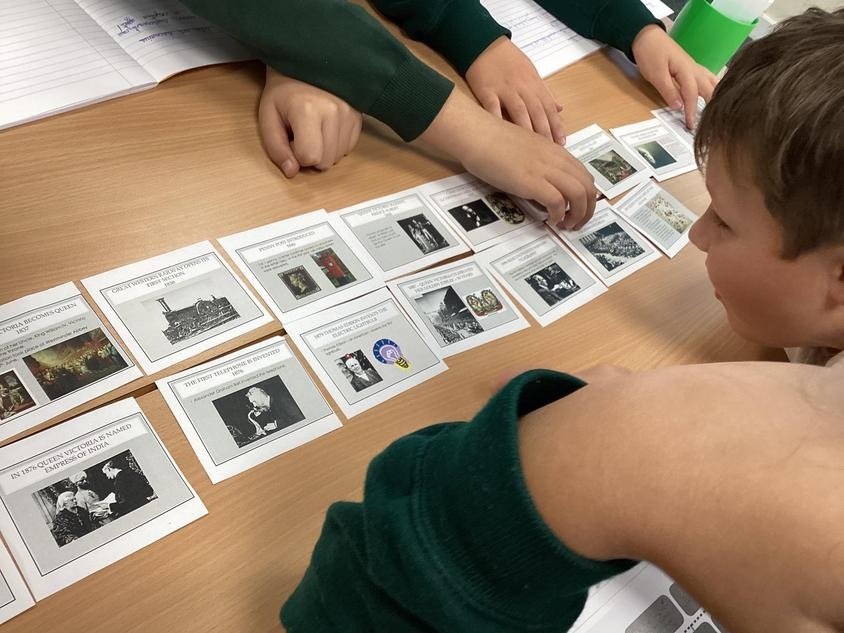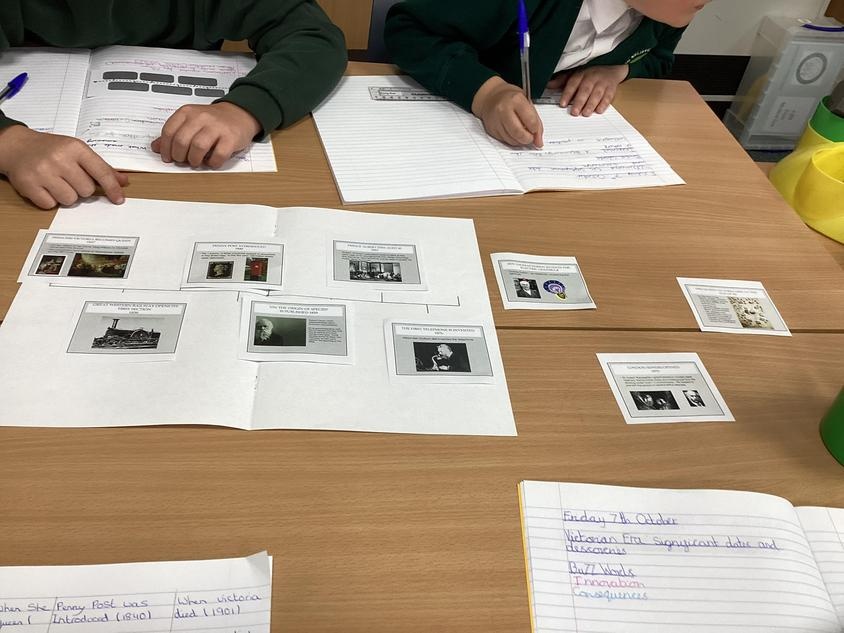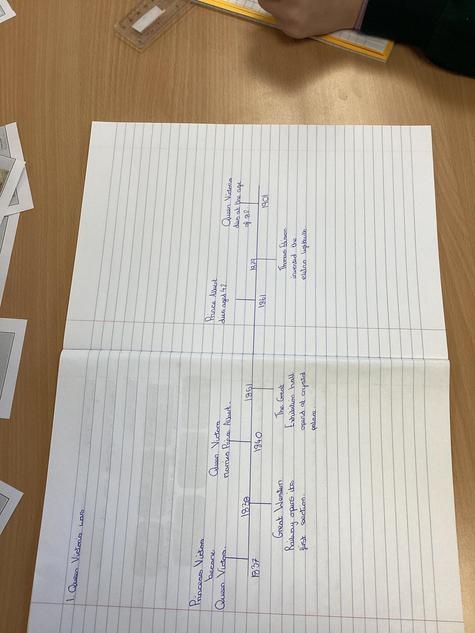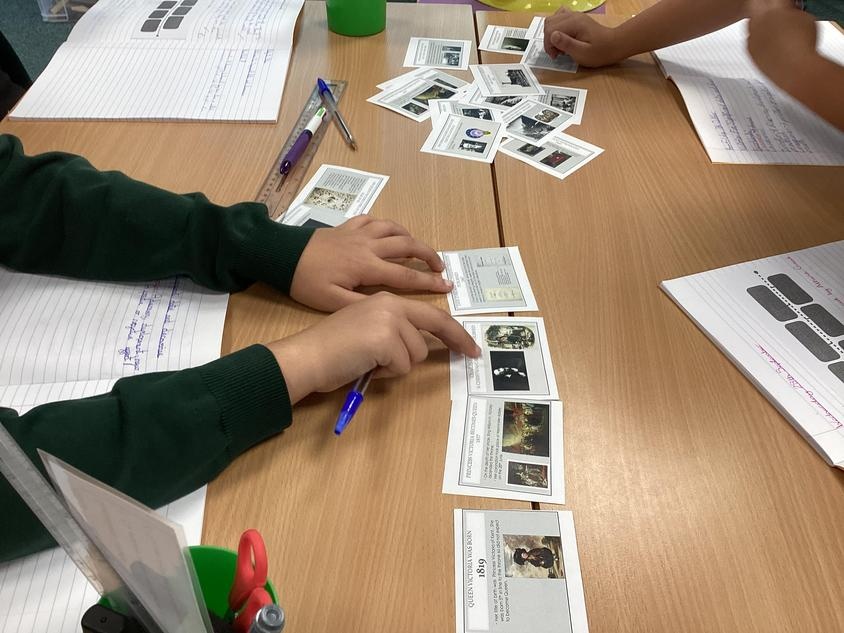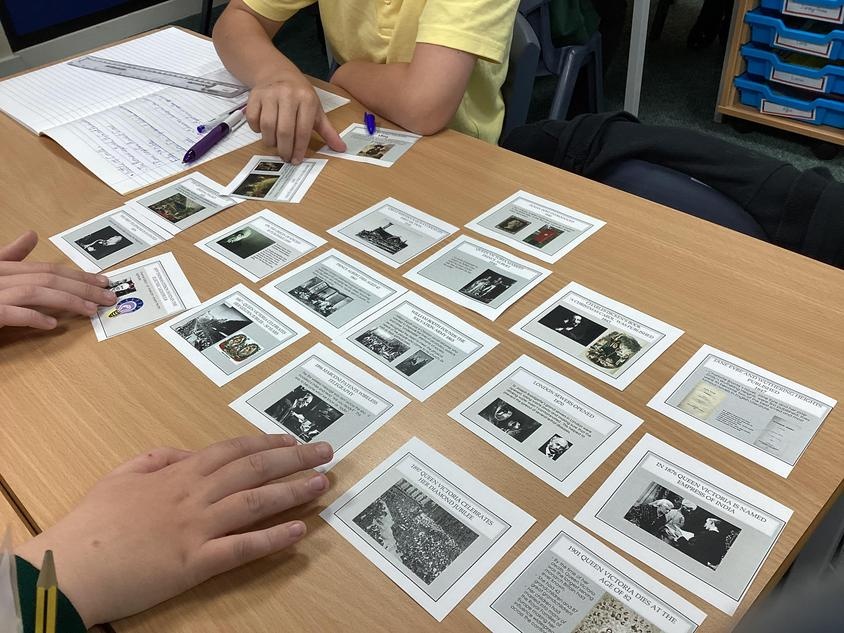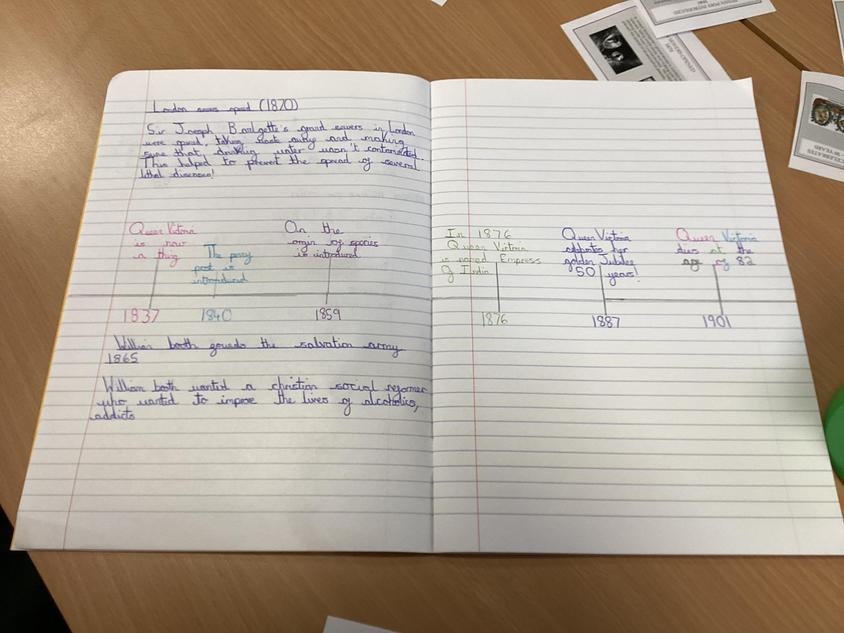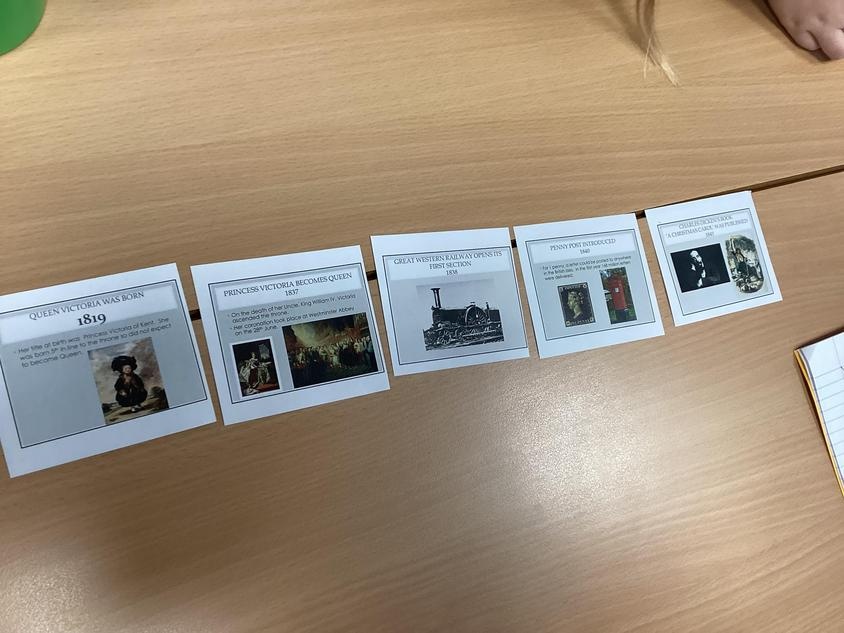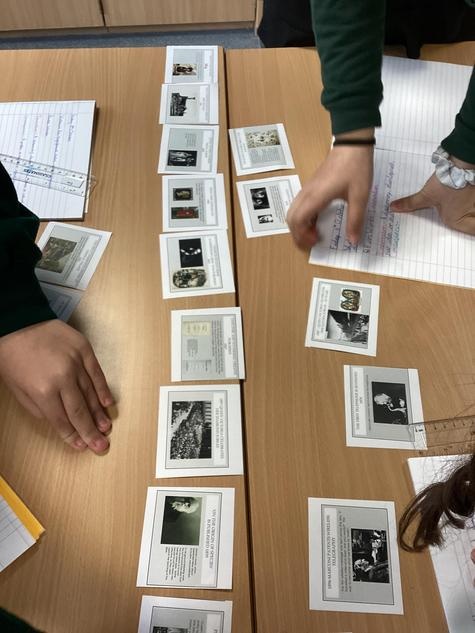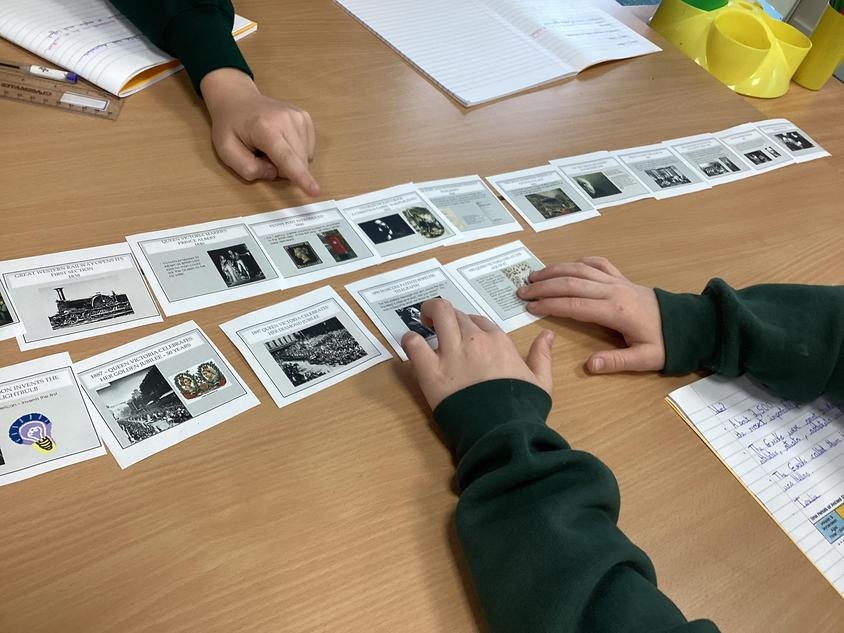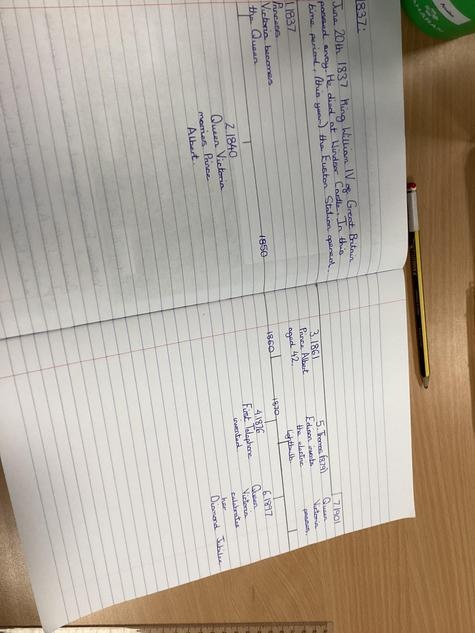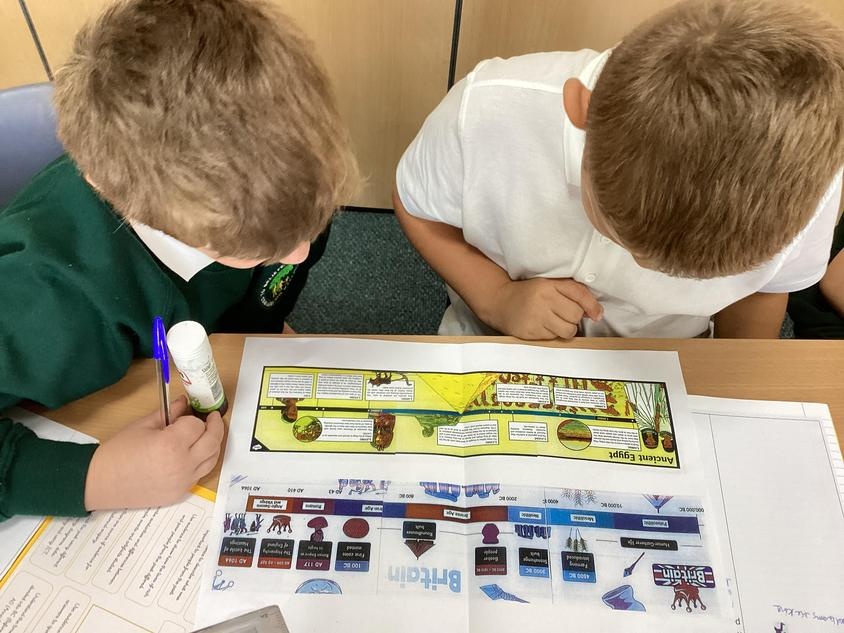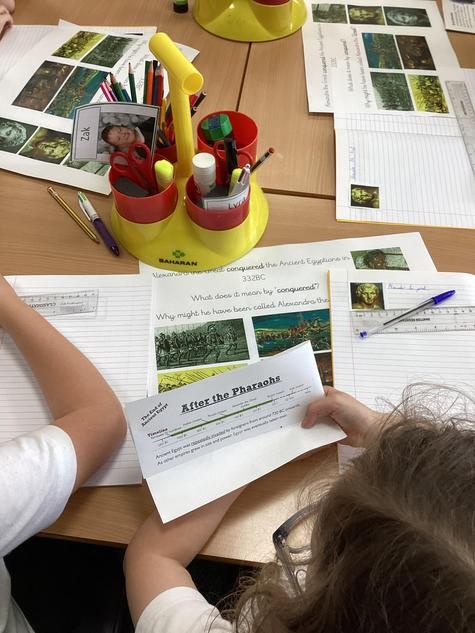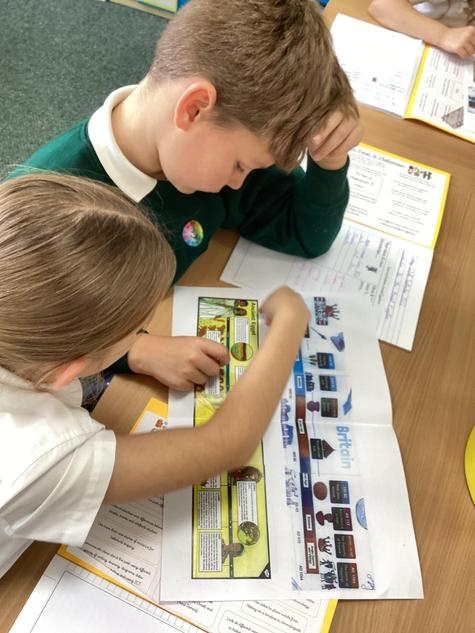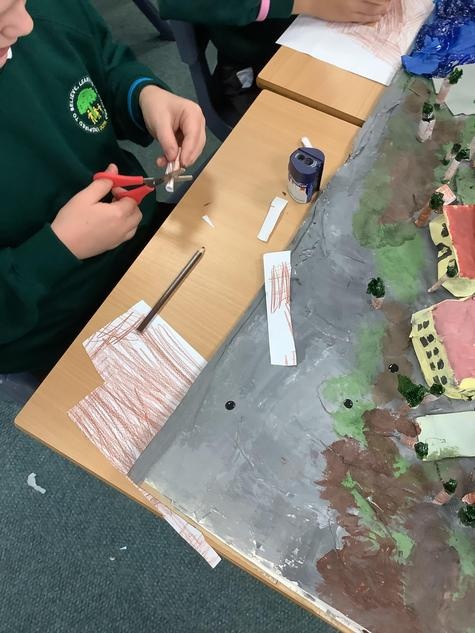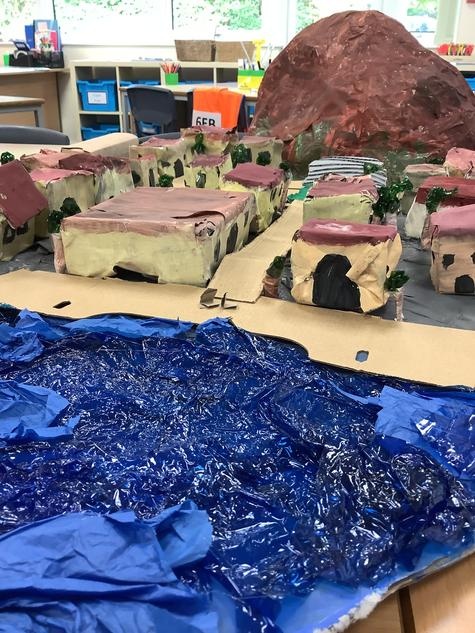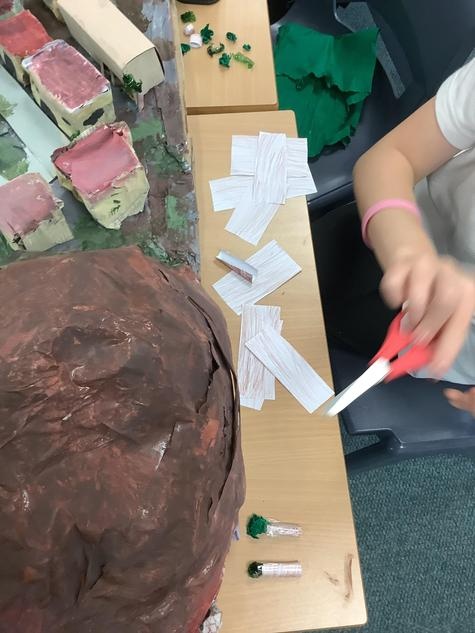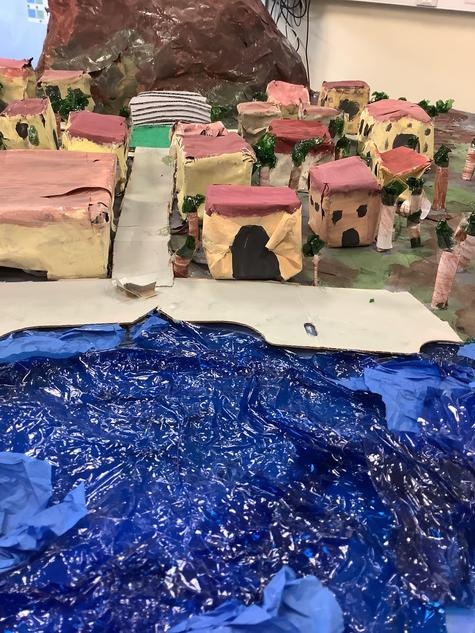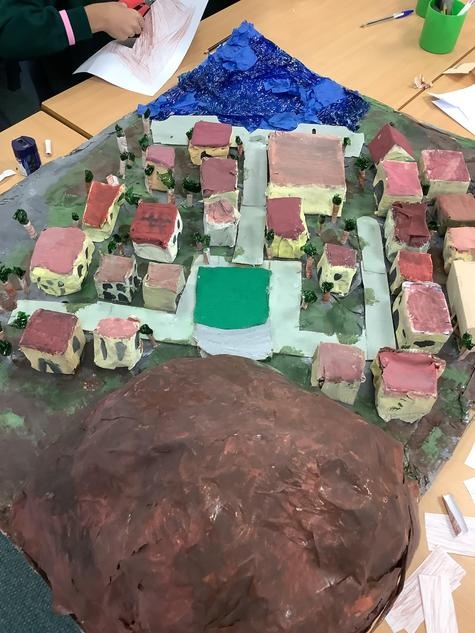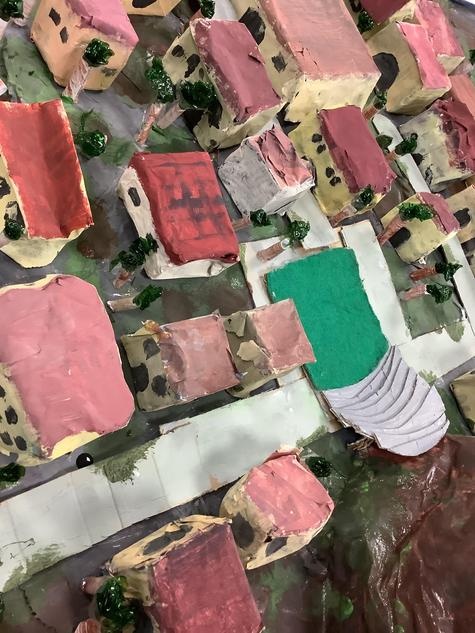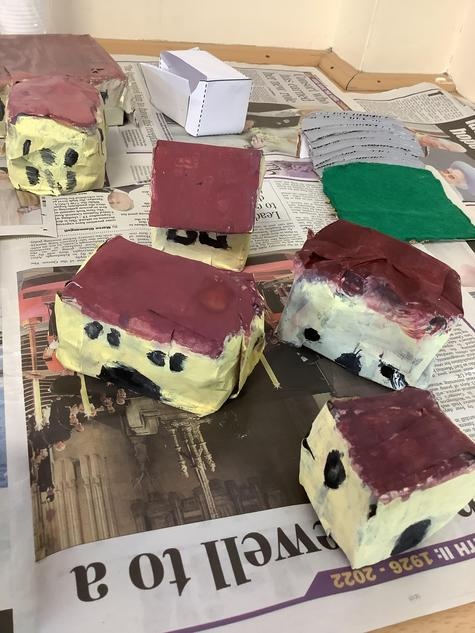History
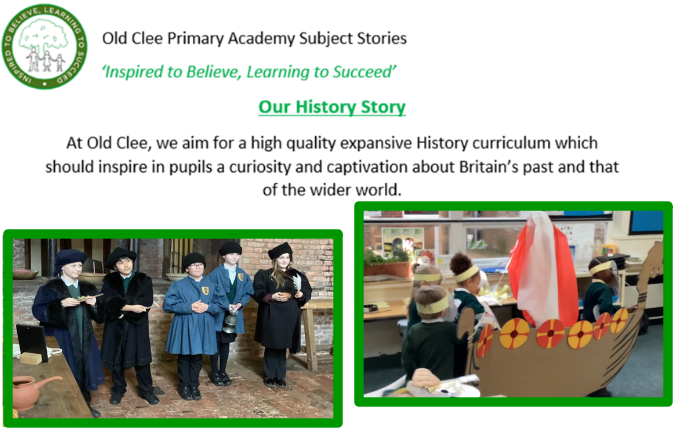
National Curriculum Intent
‘The national curriculum for History intends to ensure that all pupils:
- know and understand the history of these islands as a coherent, chronological narrative, from the earliest times to the present day: how people’s lives have shaped this nation and how Britain has influenced and been influenced by the wider world
- know and understand significant aspects of the history of the wider world: the nature of ancient civilisations; the expansion and dissolution of empires; characteristic features of past non-European societies; achievements and follies of mankind
- gain and deploy a historically grounded understanding of abstract terms such as ‘empire’, ‘civilisation’, ‘parliament’ and ‘peasantry’
- understand historical concepts such as continuity and change, cause and consequence, similarity, difference and significance, and use them to make connections, draw contrasts, analyse trends, frame historically-valid questions and create their own structured accounts, including written narratives and analyses
- understand the methods of historical enquiry, including how evidence is used rigorously to make historical claims, and discern how and why contrasting arguments and interpretations of the past have been constructed History – key stages 1 and 2
- gain historical perspective by placing their growing knowledge into different contexts, understanding the connections between local, regional, national and international history; between cultural, economic, military, political, religious and social history; and between short- and long-term timescales.
Our Intent
At Old Clee, we aim for a high quality expansive history curriculum which should inspire in pupils a curiosity and captivation about Britain’s past and that of the wider world.
Our teaching throughout the year groups is progressive and equips pupils to: investigate and interpret a range of sources from the past (H1), build an overview of a range of societies around the world (H2), understand chronology (H3) and to communicate historically using historical vocabulary in a variety of ways (H4). We believe that being able to communicate historically is key in enabling children to deepen understanding of being a Historian.
Pupils will recognise and understand about significant aspects of the history of the ancient civilisations and empires in addition to changes in living memory and beyond living memory. Pupils will learn about the lives of significant individuals of the past and in doing so, understand the methods of historical enquiry and be able to ask and answer variety of skills and knowledge based questions.
At Old Clee, we want our pupils to relish and love learning about History. Pupils will gain knowledge and skills, not just through experiences within the classroom, but also with the use of fieldwork and educational visits, enabling them to deepen their understanding of who and what has shaped our world today. History fires the children’s curiosity about the past in Britain and the wider world and plays an essential part in understanding how people and events in the past have shaped the way that we live now. This has been further enhanced by our recent journey towards becoming a thinking school. Metacognition underpins everything that we do at Old Clee. We aim to develop creative thinkers, resilient problem solvers and reflective questioners who are equipped with the skills and knowledge to make a positive impact in the world around them.
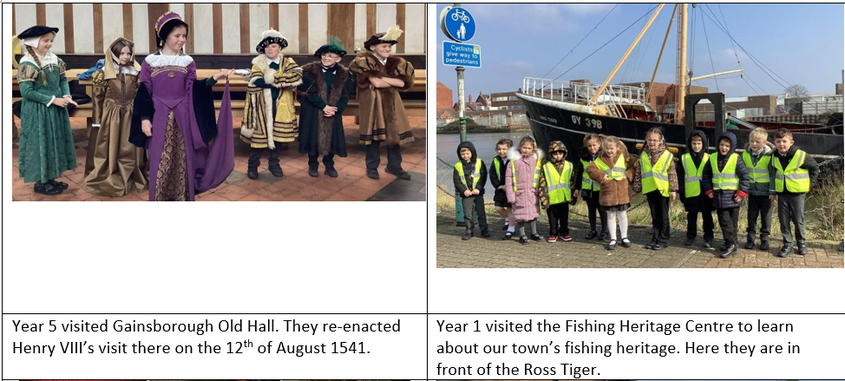
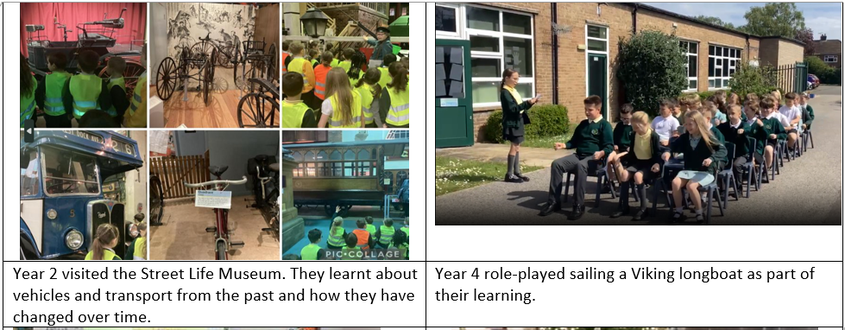
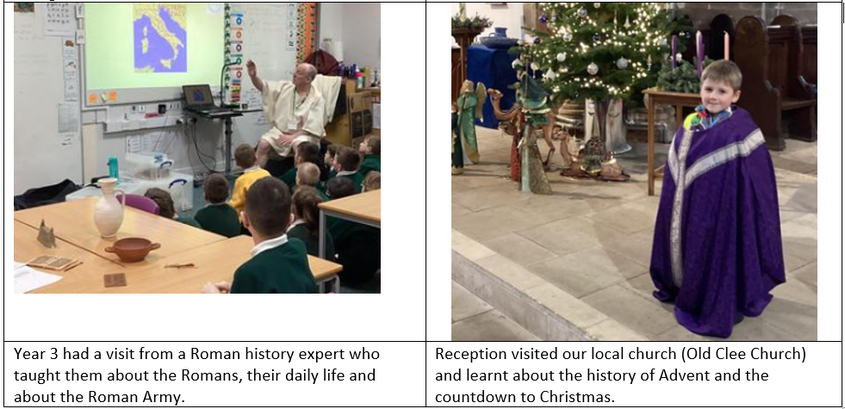
Our Implementation
Our History Concepts are continually revisited throughout Years 1 to Year 6. These are the consistent 'umbrella' concepts that all objectives sit under. These skills are also progressive and are consolidated over a two year period.
- To investigate and interpret the past - This concept involves understanding that our understanding of the past comes from an interpretation of the available evidence.
- To build an overview of world history - This concept involves an appreciation of the characteristic features of the past and an understanding that life is different for different sections of society.
- To understand chronology - The concept involves an understanding of how to chart the passing of time and how some aspects of history studied were happening at similar times in different places.
- To communicate historically - This concept involves using historical vocabulary and techniques to convey information about the past.
Each History concept has its own facet of rich knowledge categories which help to strengthen the history schema. These are taught and revisited from Year 1 to 6, with children exposed to these at least once every two years.
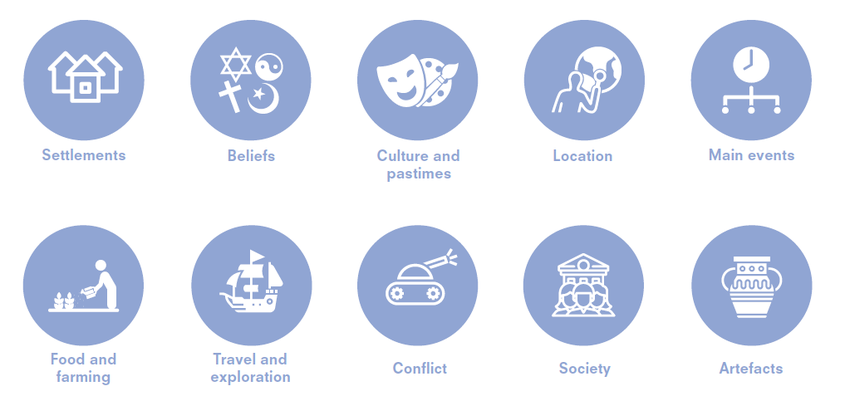

Criteria for progression sits within the History end point set out for each year group. These are the end points pupils should reach to show they are meeting the expectations of the curriculum. The route to achieving the goals includes creating a strong schema, based on rich knowledge, subject specific vocabulary and POP tasks (Proof of Progress).
Our curriculum is an ambitious curriculum that is chronologically progressive throughout the whole school. History focuses on the substantive and disciplinary knowledge and skills stated in the National Curriculum. Within this, pupils regularly address questions focusing on the second order concepts.
Our long term plans provide a clear list of the breadth of topics that will be covered - they are the curriculum drivers. Curriculum drivers are underpinned by the National Curriculum and focus on Early History, British History and Local History. KS1 are made up of three drivers, including significant people, significant events, changes within living memory and local links to Grimsby. KS2 have three drivers per year group, including some local links within the Key Stage. These incorporate all of the knowledge rich language and learning the children cover throughout the year.
Whilst not all knowledge categories are taught within each driver, pupils are exposed to these every two years. Children will therefore be exposed to these categories 3 times from Year 1 to Year 6. It is through the revisiting of each category that history connections are deepened and thus strengthening learning in the long term memory.
Within Foundation Stage, activities and experiences for pupils are based on the seven areas of learning and development. Provision for History is mainly focused upon the ‘understanding of the world’ area focusing on the ‘the past and the present’. Within our Foundation Stage, the pupils learn through experiences that introduce the concept of time and change. For example, pupils may be asked to bring in photographs of themselves as babies and to discuss how they have changed over time. At Old Clee, we ensure that within the teaching of History, it is important to empower all children to gain a ‘real-life’ hands on experience, encompassing many local points of interest.
History will be delivered in fortnightly lessons with a Proof of Progress (POP) task at the end of every term (way points). This will give teachers a clear understanding of knowledge retention. Areas of study will be interleaved through retrieval practice to develop schema knowledge, so that information can extend to children’s long term memory. A schema is created when pupils organise knowledge into meaningful units. Knowledge webs introduce the drivers by using relevant knowledge categories.
The example below shows how The Vikings driver has been presented using the relevant knowledge categories of location, travel and exploration, main events and beliefs.
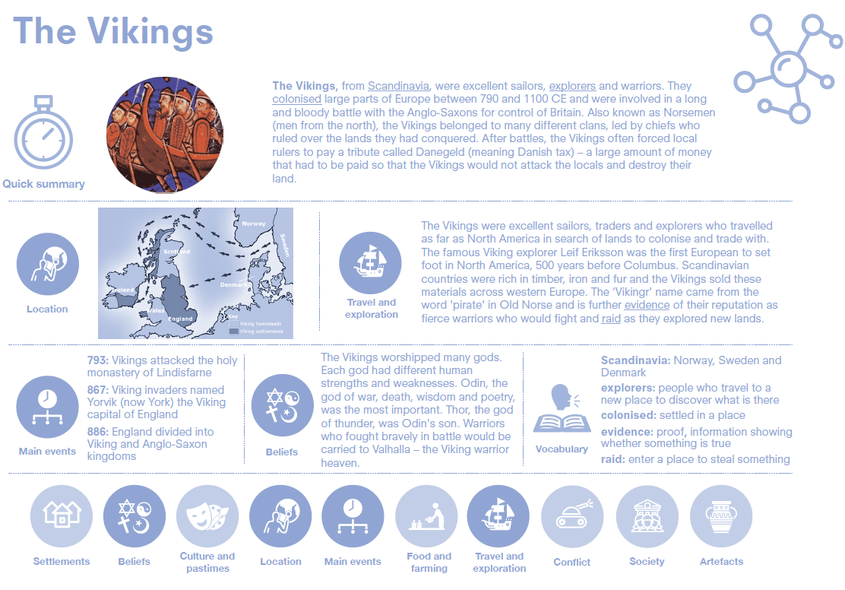
The Impact
The impact and measure of this is to ensure that children at Old Clee are equipped with an ambitious knowledge rich curriculum linked to Early History, British History and Local History. As well as this, they will gain the appropriate historical enquiry skills which will enable them to become reflective learners ready for the curriculum at Key Stage 2/3. Further to this, it will enhance the children’s cultural capital, which will support them throughout their life.
Children will reflect on their learning regularly and be given opportunities to recall knowledge previously learnt with confidence through retrieval within the lesson. We also regularly assess the children’s ability to use the History skills within each lesson ensuring these are covered across the year. As well as this, termly ‘proof of progress’ POP quizzes will provide children with another opportunity to retrieve vocabulary and knowledge learnt throughout the term.
Each driver has been mapped and paced out by the teacher using the ambitious knowledge, vocabulary and skills. This enables each teacher to see the progression of the drivers throughout the year as well as prior and future learning for the children.
Whilst doing this, we aim to inspire an enthusiasm and excitement year upon year across the school when studying new periods in history, historical events or significant people. We aim for our pupils to be passionate about History preparing them as well-informed, lifelong learners in the wider world. We want our children to thoroughly adore learning about History, discover the importance of events from the past and bringing them to our children’s present. This will shape their futures.
If you were to walk into a History lesson you would see:
- Teachers referring to our child friendly ‘Being a Historian’ skills sheet.
- Children using a range of sources and evidence to support their learning.
- Elements of spiralised learning recapping prior knowledge within lessons through retrieval.
- Children using historical vocabulary throughout their learning
- Ambitious knowledge taught to all whilst providing suitable adaptations for SEND children, to support access to the learning.
Through monitoring:
- Monitoring of teaching and learning shows evidence of good staff subject knowledge and understanding of skills and knowledge being taught. Staff using knowledge organisers to support their own understanding before teaching.
- Vocabulary is being modelled in lessons, and pupils are expected to use correct historical terminology.
- Skills that are tracked and monitored to ensure the children are exposed to all skills.
- Past learning is repeatedly ‘spiralised’ through retrieval which enables pupils to recall and build upon work from the previous years.
Pupil Voice:
What does being a Historian mean at Old Clee?
Year 2 Pupil: ‘To look back at the past, look at different newspapers and pictures and learn new things!’
Year 5 Pupil: ‘Understanding what happened in the past and to have knowledge of different people. To look at texts, journals, information and portraits to help us learn what happened.’
What do you think of History lessons at Old Clee?
Year 3 Pupil: ‘I really like learning about the past and enjoyed the visitors who came in to teach us more about the Romans.’
Year 6 Pupil: ‘I enjoy the lessons because we get to learn about the past and compare this to how we live our lives now. I like learning about and using timelines.’
What would you like to improve about being a Historian at Old Clee?
Year 1 Pupil: ‘Investigate things more and find out about even more interesting people!’
Year 4 Pupil: ‘I would like more History lessons! It would be good to have more information around the classroom to support our learning.’
Successes in 2023-2024
- Children retrieve prior knowledge during retrieval practice at the start of each lesson.
- Many year groups have experienced historical school trips or workshops.
Priorities in 2024-2025
- Explore ways to develop the adaptation of resources or access to the History curriculum for SEND children and Pupil Premium children whilst ensuring the curriculum is still ambitious for all.
- Explore ways to invest in staff CPD for History.
- Enhance the History curriculum to give all pupils access to interactive learning opportunities through trips and workshops. This will deepen children’s cultural capital.
Archeologist Visitors - The Romans!
Today we were visited by an archaeologist from Heritage Lincolnshire. She spoke with us about the Romans. We looked at how the Lincolnshire settlement had changed since the Romans invaded, different roman towns and we discussed different foods that the Romans brought to Britain.
We took part in quizzes and we were also able to look at different Roman artefacts. This was where we were able to be archaeologists ourselves and complete an artefact observation form to explain what we had found! We had lots of fun!
Year 6 have been putting important events in the Victorian Era in chronological order!
Year 1 - Being a Historian!
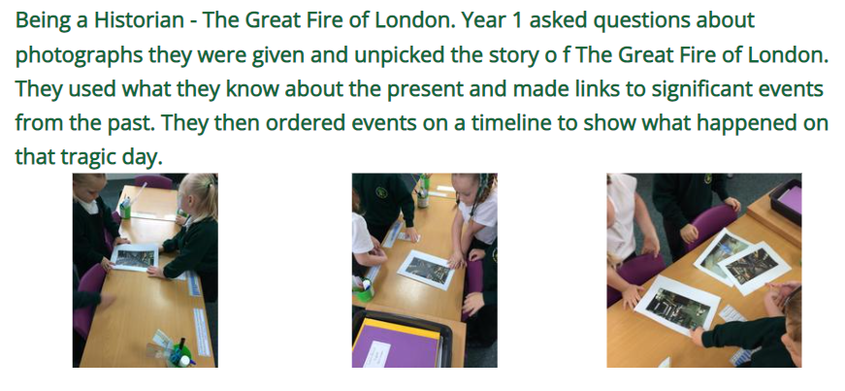
Year 4 - Being Historians whilst researching all about Ancient Egypt using a timeline!
Year 6 - Being Historians! Year 6 had a fun project week where they were researching all about Pompeii and created a model of Vesuvius and the city of Pompeii beneath it!
